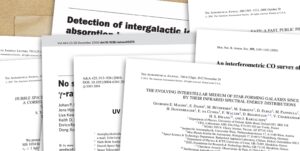Upcoming Events




Search the site
Recent DAWN papers
Gibson, Justus L. et al. , JADES Ultrared Flattened Objects: Morphologies and Spatial Gradients in Color and Stellar Populations, The Astrophysical Journal
Vujeva, Luka et al. , Efficient Survey Design for Finding High-redshift Galaxies with JWST, The Astrophysical Journal
Zimmerman, Dhruv T. et al. , Tracing the History of Obscured Star Formation with the SIMBA Cosmological Galaxy Evolution Simulation, The Astrophysical Journal
-
The Cosmic Dawn Center
-
-
Staff & students
Some 50 scientists and students are affiliated with the Cosmic Dawn Center. Will you be our next colleague?
-
Surveys
The Cosmic Dawn Center is involved in a number of observational surveys, dedicated to unraveling the mysteries of the early Universe.
-
Outreach
We enjoy communicating our science to the public, through social media, popular science articles, public talks, interviews in various media, and just answering questions from interested readers.
Welcome to the Cosmic Dawn Center

The Cosmic Dawn Center (DAWN) is an international basic research center supported by the Danish National Research Foundation.
DAWN is located in Copenhagen at the Niels Bohr Institute, University of Copenhagen, and at the National Space Institute at the Technical University of Denmark (DTU Space).
The center is dedicated to uncovering how and when the first galaxies, stars and black holes formed, through observations with the prime telescopes of the next decade (ALMA, JWST, Euclid, E-ELT, HST) as well as through theory and simulations.
For visit DAWN's university-specific website, click below
News
Charlotte Mason receives large ERC grant to study structure formation in the early Universe
Congratulations to Charlotte Mason who has been awarded a large grant from the European Research Council. The grant will fund two postdocs and a PhD student that will become a part of Charlotte Mason’s research group and help studying how galaxies formed and affected the early Universe.
-
Chinese-French mission to study exploding stars launched successfully
-
James Webb discovers record-distant galaxy, again
-
James Webb opdager rekordfjern galakse, igen
-
Invisible Galaxies, Through a Scientist’s Eyes
-
First results from ESA’s space telescope Euclid
 Astro-Pic Of the Day
Astro-Pic Of the Day
- Comet Tsuchinshan-ATLAS over CaliforniaThe tails of Comet Tsuchinshan-ATLAS were a sight to behold





